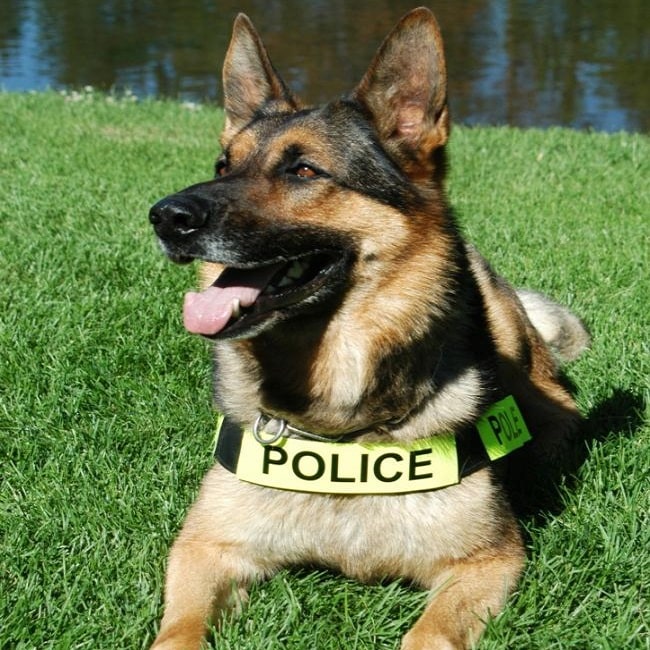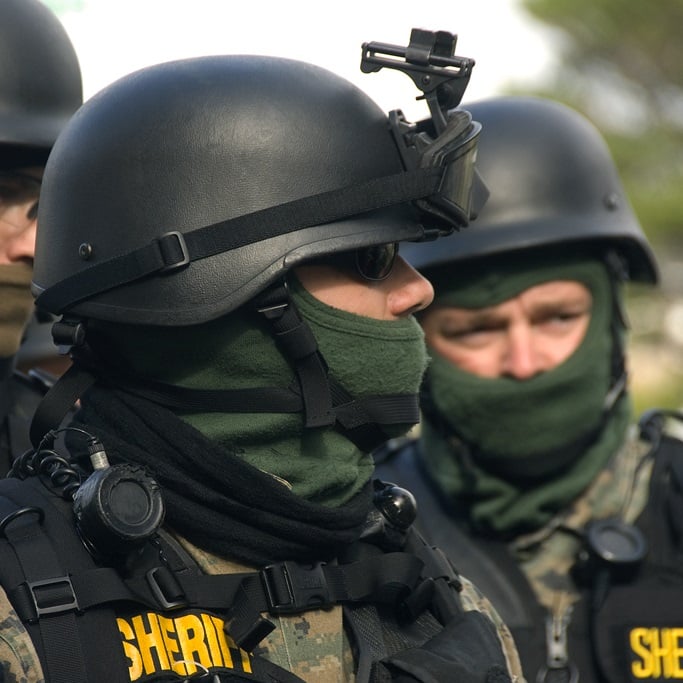
By Phillip Smith
Last year, in one of the Roberts’ court’s rare decisions not siding with law enforcement, the US Supreme Court ruled that police could not detain people pulled over for traffic violations in order to await the arrival of a drug-sniffing police dog. Once the traffic violation was dealt with, motorists were free to go, the court held.
“Absent reasonable suspicion, police extension of a traffic stop in order to conduct a dog sniff violates the Constitution’s shield against unreasonable seizures,” wrote Justice Ruth Ginsberg for the court’s 6-3 majority in Rodriguez v. United States.
That case was a necessary antidote for police practices that evolved after the Supreme Court’s decision in Illinois v. Caballesa decade earlier. In that case, the high court held the use of drug dogs during a traffic stop did not violate Fourth Amendment proscriptions against unwarranted searches and seizures because, in the court’s rather involved reasoning, people carrying drugs have no expectation of privacy. Unlike the use of infra-red cameras to peer inside homes, which the court disallowed in an earlier case, the use of drug dogs would only reveal drugs, not other intimate details of one’s life, so that was okay.
What came after Caballes was repeated reports of people being stopped for alleged traffic infractions on the highway, then forced to wait on the side of the road in a sort of legal limbo (“Am I under arrest?” “No.” “Am I free to go?” “No.”) for the arrival of a drug dog to conduct a search of their vehicles. Then, when the drug dog would “alert” to the presence of drugs, police had probable cause to search the vehicle, find the drugs, and arrest and charge the driver.
What also came after Caballes was people being arrested, convicted, and imprisoned for drug offenses after being detained for lengthy periods. Asserting that their rights had been infringed by the lengthy detentions, some of them appealed, arguing that the evidence against them should be suppressed because it was unconstitutionally obtained.
The situation festered until the Rodriguez decision was announced. Police would no longer have a free hand to hold people against their will while awaiting the drug dog’s arrival. That should have reined in the cops, but it hasn’t exactly worked out that way. Instead, two distinct lines of post-Rodriguez drug dog jurisprudence have emerged, one seeking to uphold and strengthen it, but the seeking to find work-arounds for drug-hunting police and their canine helpers.
Representative of Rodriguez’s positive impact was last month’s Kentucky Supreme Court decision in Davis v. Kentucky. In that case, an officer pulled over Thomas J. Davis for crossing the center line, administered field sobriety tests that Davis passed, then asked for Davis’s consent to search the vehicle. Davis refused to consent to a vehicle search, at which point the officer had his drug dog sniff the exterior of the car, despite Davis’s protests. The dog alerted, the car was searched, and police found methamphetamine and drug paraphernalia.
At trial, Davis moved to have the evidence suppressed as fruits of an unlawful search, but he lost at the trial level and reached an agreement to plead guilty while preserving his right to appeal the ruling on the motion. He was sentenced to 20 years in prison. The Kentucky Supreme Court reversed the conviction and sent the case back to the trial court.
“As recently clarified by the United States Supreme Court in Rodriguez v. United States, 135 S. Ct. 1609 (2015), a police officer may not extend a traffic stop beyond its original purpose for the sole purpose of conducting a sniff search — not even for ade minimus period of time,” the state high court concluded. “Under Rodriguez, any nonconsensual extension of the detention beyond the time taken to verify Appellant’s sobriety, unless accompanied by additional grounds to believe other criminal activity was afoot, was unconstitutional… With no articulable suspicion to authorize an extended detention to search for drugs, [the officer] prolonged the seizure and conducted the search in violation of Rodriguez and Appellant’s Fourth Amendment protections.”
“While Davis isn’t perfectly clear, it strongly suggests that the use of drug dog without reasonable suspicion a crime has been committed offends the reasonableness clause of the Fourth Amendment, said John Wesley Hall, a Little Rock criminal defense attorney, former head of the National Association of Criminal Defense Attorneys (NACDL), and author of Search and Seizure, 5th Ed.
Keith Stroup, the founder and currently counsel for the National Organization for the Reform of Marijuana Laws (NORML), liked what he saw in Davis, too.
“This is a great decision,” Stroup said. “It will help a lot of drivers, but it doesn’t totally write drug dogs out. With no articulable suspicion to authorize an extended detention to search for drugs, the police are out of luck.”
Police erred in this case, Stroup said, but not in the sense that the court meant.
“The mistake the cops made is that they didn’t lie and claim they smelled marijuana,” he said. “They will learn very quickly that the first thing to say is ‘I smell marijuana.’ Then they can at least do a search of the passenger compartment.”
Still, Stroup pronounced himself pleasantly surprised at the ruling.
“In some states, the Supreme Court is very law enforcement-oriented and willing to give police the benefit of the doubt. That this came out of Kentucky is promising,” he said.
The Kentucky case shows how the courts are applying Rodriguez to protect the rights of motorists, but other post-Rodriguez cases are heading in a different direction. As Hall notes on his Fourth Amendment blog linked to above, various US district and appellate courts are bending over backwards to find ways to allow drug dog searches to continue without any reasonable suspicion a crime is being committed.
“Dog sniff by second officer while first officer wrote ticket didn’t extend stop,” he wrote describing a case> out of the 7th US Circuit Court of Appeals.
“Dog sniff during the normal computer checks are valid,” is how he characterized another case in federal district court in Georgia.
“GA holds that a dog sniff of a car before dispatch confirms ID is valid because it didn’t extend the traffic stop,” he wrote about another Georgia case.
The upshot of these and similar cases is that they provide an opening for police to get their drug dog searches in simply by delaying what should be routine, quickly accomplished, procedures, such as verifying license, registration, and outstanding criminal warrants. “I severely disagree with that case law,” said Hall. “It just offends every sense of justice and privacy. It makes a car a target without any reasonable suspicion whatsoever, and it essentially rewards the cop with the drug dog in his car.”
And he scoffs at the reported delays in those routine procedures. “The cops deliberately delay the response,” he said. “As fast as these computers are, if it takes more than 60 seconds, it’s complete bullshit. Or they call in the drivers’ license number and it takes forever for the call to come back, so the cop can sit there and chat with you and try to find excuses to come up with reasonable suspicion.
Clearly, Rodriguez hasn’t settled the issue. While law enforcement is now somewhat constrained in the use of drug-sniffing dogs on the highway, police — and friendly courts — are working assiduously to find ways to continue to use them. Ironically, the current state of the law could result in not fewer but more drug dogs on the highway, because under some of these rulings, the police officer who has a dog with him can get away with a quick sniff, while the officer who has to call and wait for one to arrive would be out of luck.
And that means the litigation likely isn’t over. “The Supreme Court is going to have to take this up one of these days,” said Hall. “This whole idea of pulling people over with dogs smacks of Nazi Germany.”
Article From StoptheDrugWar.org – Creative Commons Licensing – Donate





